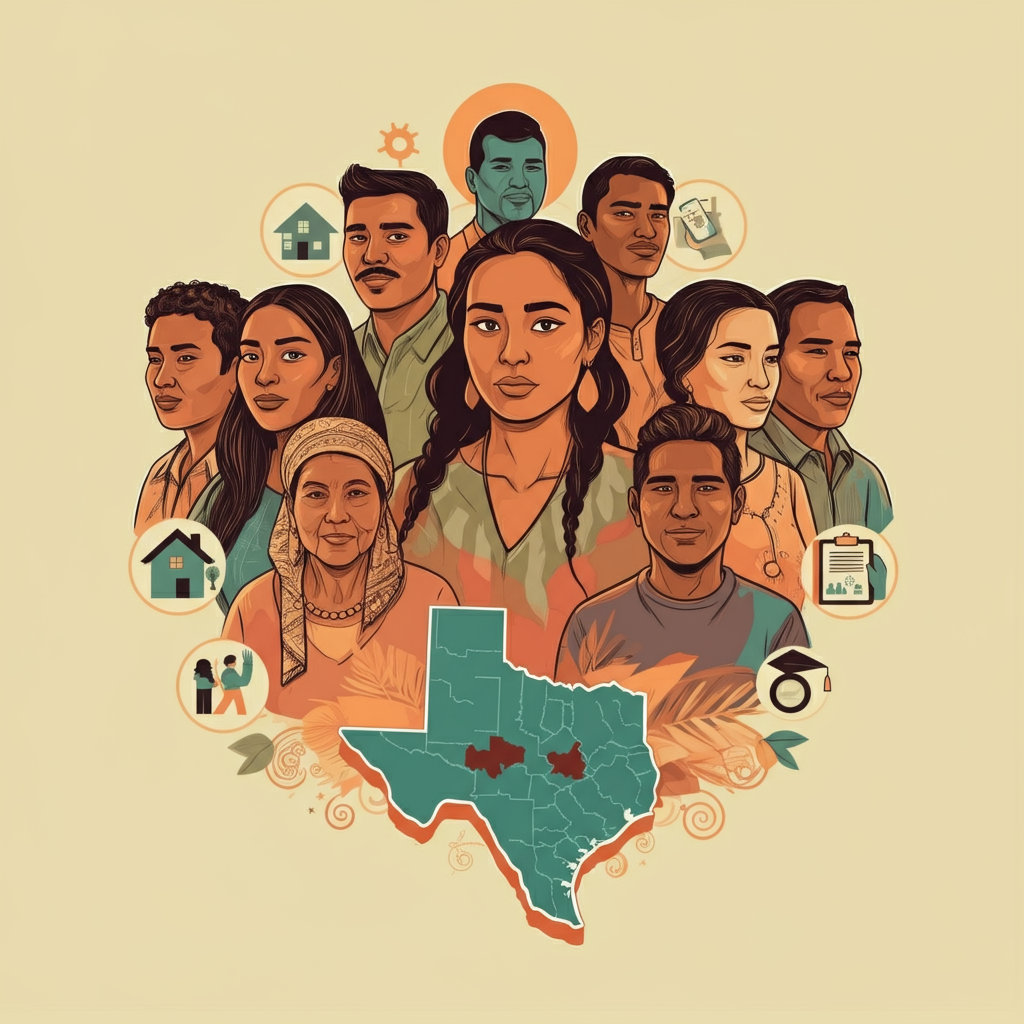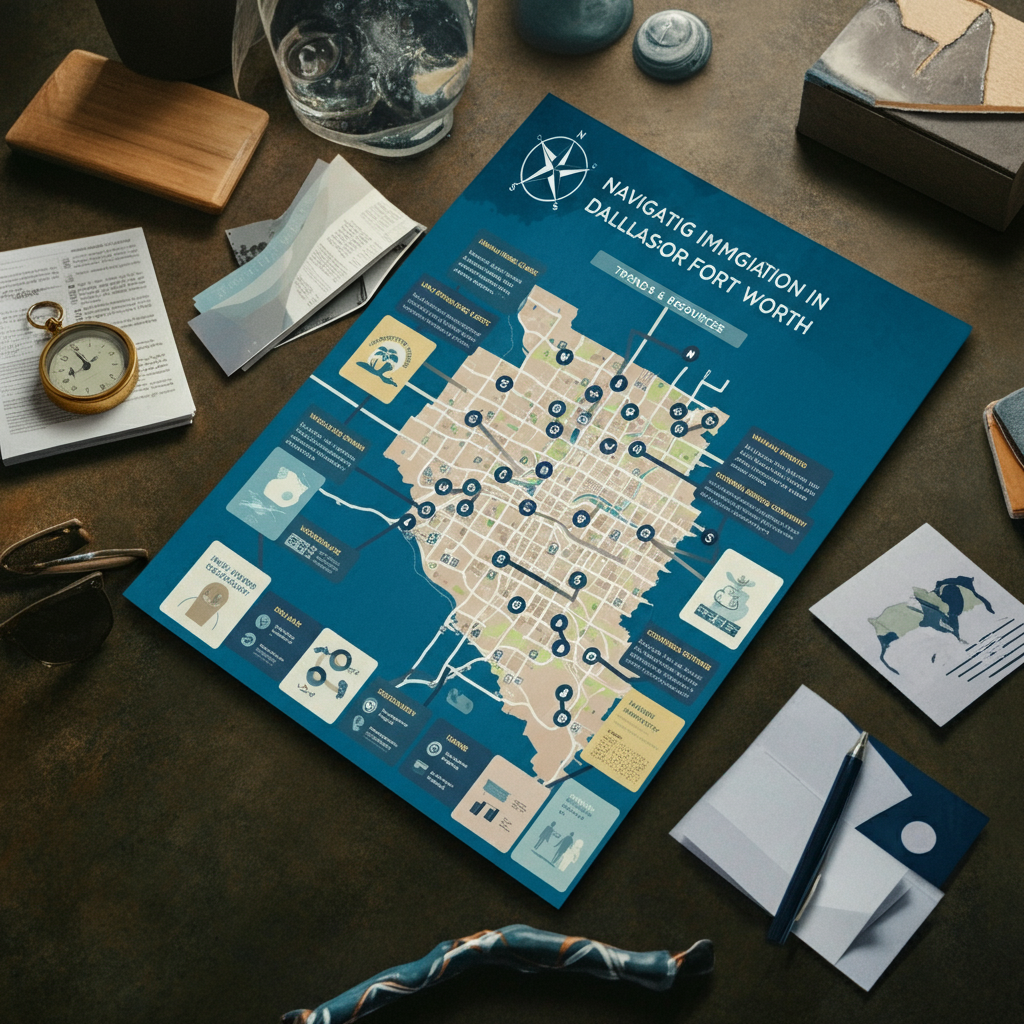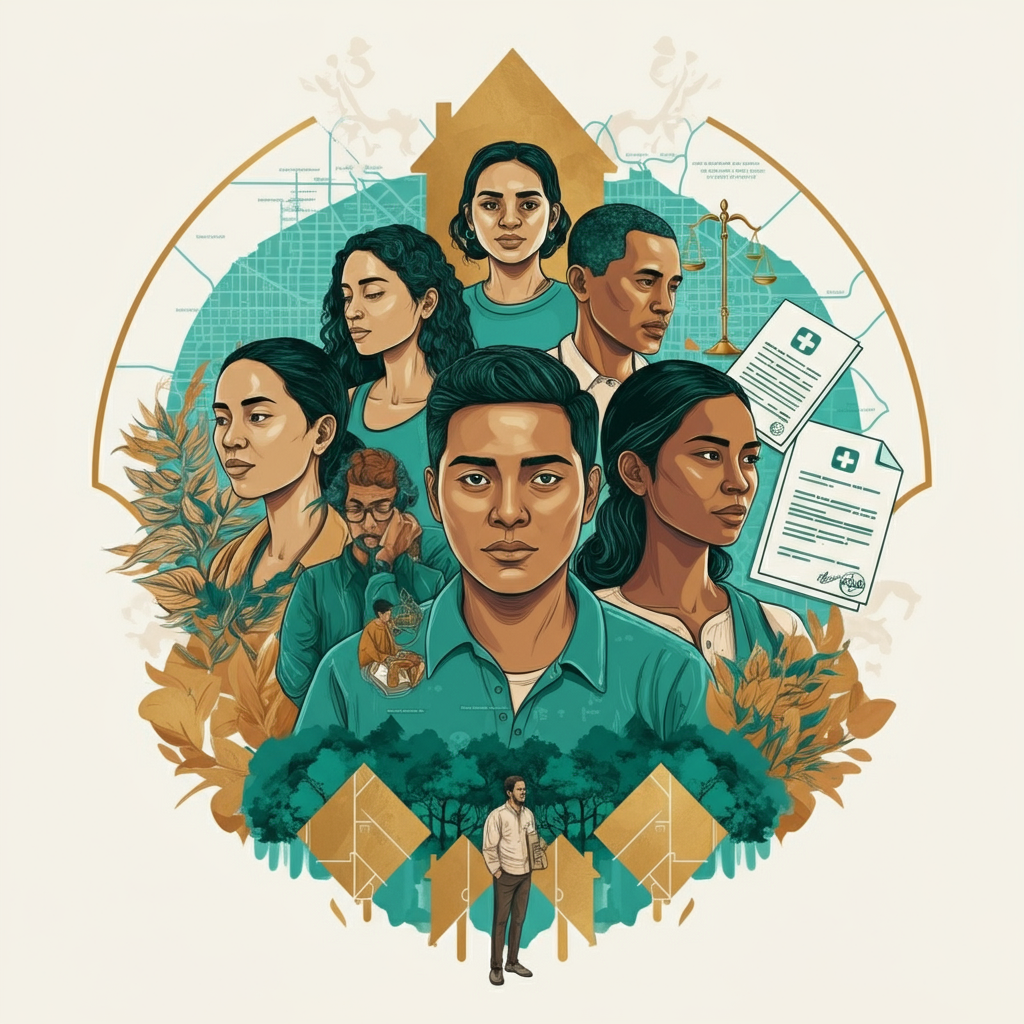A significant shift in immigration policy is sending ripples across Texas, and the Dallas-Fort Worth metroplex is at the heart of the conversation. A newly enacted law, Senate Bill 4 (SB 4), is set to reshape the landscape of immigration enforcement, creating new state-level regulations that directly affect DFW’s diverse communities. Understanding the details of this law is crucial for every resident, regardless of their immigration status.
This article will break down what SB 4 entails, explore its specific implications for the millions of people living in the Dallas-Fort Worth area, and provide essential resources for those who may be impacted. We will cover the key provisions of the law, hear from local voices, and outline steps you can take to stay informed and prepared.
What is the New Immigration Law (SB 4)?
Senate Bill 4, signed into law in late 2024, grants local and state law enforcement officers the authority to arrest and detain individuals they suspect of having entered the United States illegally. This marks a major departure from previous norms, where immigration enforcement was primarily a federal responsibility.
The key provisions of the law include:
- State-Level Criminal Offense: It is now a state crime (a Class B misdemeanor) to enter Texas from a foreign country at any location other than an official port of entry. Repeat offenses can be elevated to a felony.
- Empowerment of Local Police: Police officers across Texas, including those in Dallas, Fort Worth, Arlington, and surrounding suburbs, are empowered to question and arrest individuals on suspicion of illegal entry.
- Judicial Orders for Removal: The law allows Texas judges to issue “orders to return” to Mexico. If an individual does not comply with this order, they could face more severe felony charges.
This legislation effectively creates a parallel state-run immigration enforcement system, a move that has sparked legal challenges and intense debate about its constitutionality and potential for racial profiling.
How SB 4 Directly Impacts the Dallas-Fort Worth Area
The DFW metroplex is one of the most diverse regions in the nation. According to recent census data, over 1.8 million residents in the DFW area are foreign-born, and a significant percentage of the population identifies as Hispanic or Latino. This new law introduces a layer of uncertainty and fear for many families.
Increased Scrutiny and Potential for Profiling
Critics of SB 4 are concerned it will lead to increased racial profiling. Police may be more likely to question individuals based on their appearance or perceived accent, creating a climate of fear. This could affect not only undocumented immigrants but also U.S. citizens and legal residents of color.
As one Dallas-based community leader, Maria Garcia of the North Texas Immigration Advocacy Group, stated, “This law puts a target on the back of anyone who ‘looks’ or ‘sounds’ like an immigrant. We are talking about our neighbors, coworkers, and friends who have built their lives here. A routine traffic stop could now escalate into a life-altering immigration crisis for a family.”
The Strain on Local Law Enforcement and Resources
While the law grants police new powers, it also places a significant burden on them. DFW law enforcement agencies must now dedicate time, training, and resources to immigration matters, potentially diverting focus from other local public safety priorities. Fort Worth City Council member, Javier Mendez, voiced his concern in a recent town hall: “Our police officers are trained to protect and serve our entire community. Asking them to become de facto immigration agents strains our resources and, more importantly, erodes the trust we have worked so hard to build with immigrant communities.”
Recent statistics show that immigrant households in Texas, including the DFW area, contribute over $30 billion in state and local taxes annually. This economic contribution highlights the deep integration of immigrant families into the fabric of North Texas. The potential for deportations and family separations under SB 4 threatens this stability.
What Are the Implications for Families and Employers?
The impact of SB 4 extends beyond individual encounters with law enforcement.
- For Families: Mixed-status families, where some members are citizens or legal residents and others are not, face the terrifying possibility of being torn apart. A parent arrested under SB 4 could be separated from their U.S. citizen children, creating instability and trauma.
- For Employers: DFW’s thriving economy relies heavily on immigrant labor in key sectors like construction, hospitality, and services. The fear of deportation may drive workers further into the shadows, making them more vulnerable to exploitation and creating labor shortages for local businesses.
What to Do and Where to Find Help
Navigating this new legal environment can be overwhelming. It is vital to know your rights and access reliable information.
Know Your Rights
Everyone, regardless of immigration status, has certain constitutional rights. This includes the right to remain silent and the right to speak with an attorney. You are not required to answer questions about your immigration status from local or state police.
Seek Credible Legal Assistance
If you or someone you know is concerned about the impact of SB 4, it is crucial to consult with a qualified immigration attorney. Avoid “notarios” or unauthorized legal consultants who may provide incorrect advice. Reputable legal aid organizations in the DFW area are available to help.
Local DFW Resources:
- Catholic Charities of Dallas Immigration Services: Offers low-cost legal assistance and consultations.
- Human Rights Initiative of North Texas: Provides free legal services for asylum seekers and immigrant victims of crime.
- RAICES Texas (Dallas Office): A nonprofit agency that promotes justice by providing free and low-cost legal services to underserved immigrant children, families, and refugees.
Stay Informed
Immigration laws are subject to legal challenges and changes. Follow reputable news sources and local advocacy groups for the latest updates on SB 4’s implementation and any court decisions that may affect it. Community organizations across Dallas and Fort Worth are hosting “Know Your Rights” workshops and information sessions.
Moving Forward in a New Reality
The new immigration law in Texas presents significant challenges for the Dallas-Fort Worth community. It alters the role of local law enforcement and creates a climate of anxiety for millions. By understanding the law, knowing your rights, and connecting with reliable resources, DFW residents can better prepare for its impact. The strength of our community will be tested, but through information and mutual support, we can navigate this uncertain terrain together.
If you have questions about your specific situation, we strongly urge you to contact an experienced immigration attorney immediately.






